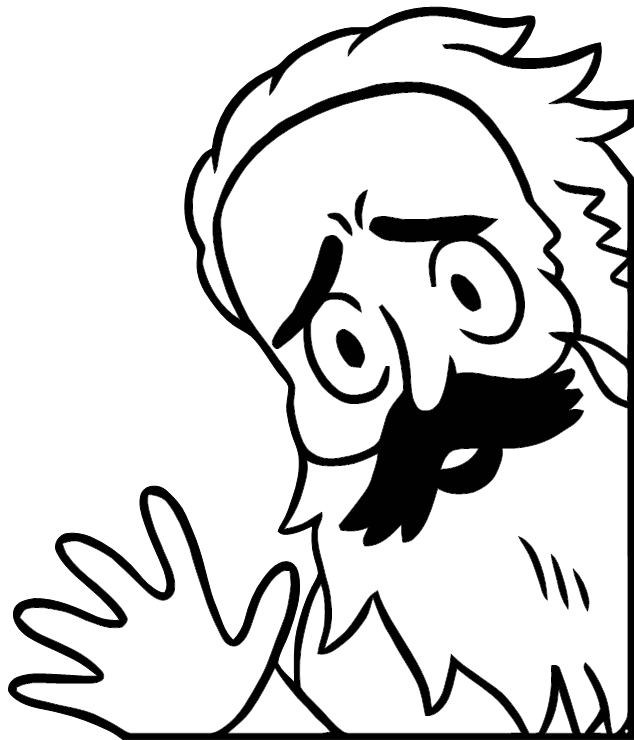Explain the bookclub: We are reading Volumes 1, 2, and 3 in one year and discussing it in weekly threads. (Volume IV, often published under the title Theories of Surplus Value, will not be included in this particular reading club, but comrades are encouraged to do other solo and collaborative reading.) This bookclub will repeat yearly. The three volumes in a year works out to about 6½ pages a day for a year, 46⅔ pages a week.
I'll post the readings at the start of each week and @mention anybody interested. Let me know if you want to be added or removed.
Just joining us? You can use the archives below to help you reading up to where the group is. There is another reading group on a different schedule at https://lemmygrad.ml/c/genzhou (federated at !genzhou@lemmygrad.ml ) which may fit your schedule better. The idea is for the bookclub to repeat annually, so there's always next year.
Archives: Week 1 – Week 2 – Week 3 – Week 4 – Week 5 – Week 6 – Week 7 – Week 8 – Week 9 – Week 10 – Week 11 – Week 12 – Week 13 – Week 14 – Week 15 – Week 16 – Week 17 – Week 18 – Week 19 – Week 20
Week 21, May 20-26. From Volume 2, we are reading Chapter 5, Chapter 6, Chapter 7, and Part 1 ('Distinctions of Form') of Chapter 8
https://www.marxists.org/archive/marx/works/1885-c2/index.htm
Discuss the week's reading in the comments.
@invalidusernamelol@hexbear.net @Othello@hexbear.net @Pluto@hexbear.net @Lerios@hexbear.net @ComradeRat@hexbear.net @heartheartbreak@hexbear.net @Hohsia@hexbear.net @Kolibri@hexbear.net @star_wraith@hexbear.net @commiewithoutorgans@hexbear.net @Snackuleata@hexbear.net @TovarishTomato@hexbear.net @Erika3sis@hexbear.net @quarrk@hexbear.net @Parsani@hexbear.net @oscardejarjayes@hexbear.net @Beaver@hexbear.net @NoLeftLeftWhereILive@hexbear.net @LaBellaLotta@hexbear.net @professionalduster@hexbear.net @GaveUp@hexbear.net @Dirt_Owl@hexbear.net @Sasuke@hexbear.net @wheresmysurplusvalue@hexbear.net @seeking_perhaps@hexbear.net @boiledfrog@hexbear.net @gaust@hexbear.net @Wertheimer@hexbear.net @666PeaceKeepaGirl@hexbear.net @PerryBot4000@hexbear.net @PaulSmackage@hexbear.net @420blazeit69@hexbear.net @hexaflexagonbear@hexbear.net @glingorfel@hexbear.net @Palacegalleryratio@hexbear.net @ImOnADiet@lemmygrad.ml @RedWizard@lemmygrad.ml @RedWizard@hexbear.net @joaomarrom@hexbear.net @HeavenAndEarth@hexbear.net @impartial_fanboy@hexbear.net @bubbalu@hexbear.net @equinox@hexbear.net @SummerIsTooWarm@hexbear.net @Awoo@hexbear.net @DamarcusArt@lemmygrad.ml @SeventyTwoTrillion@hexbear.net @YearOfTheCommieDesktop@hexbear.net @asnailchosenatrandom@hexbear.net @Stpetergriffonsberg@hexbear.net @Melonius@hexbear.net @Jobasha@hexbear.net @ape@hexbear.net @Maoo@hexbear.net @Professional_Lurker@hexbear.net @featured@hexbear.net @IceWallowCum@hexbear.net @Doubledee@hexbear.net @Bioho@hexbear.net @SteamedHamberder@hexbear.net @Meh@hexbear.net
takes me like an hour to get through ten pages, but my communist reading homework will be finished on time

I haven’t been involved in Vol 1 since it had been a while but I wanted to follow along still. But, I just finished Vol 2 so I really want to get involved there. I missed ch 1-4 but here I am.
Ch 6 is an absolute beast. It’s confusing and Marx isn’t clear in a number of areas. Even David Harvey I think got some conclusions wrong (no fault of his own, he’s never worked in accounting in a manufacturing setting like I have so it’s understandable).
That said, I think it might be one of the most important if not the most important chapter in the book, certainly in its relevance for modern capitalism. The idea that value is created only in the production sphere is ground breaking and the implications for an economy that has hollowed out its own productive capacity (like the US has) are profound.
Ch 6 is a struggle. I read it through and was really confused, so I sat down and took like 20 pages of notes (I write big though) and committed to not moving on until I finally grasped it. It was a ton of work but I’m at the point now where I think I get it.
If you’re struggling to understand what kinds of cost add value and which do not, I found that thinking about modern production is only going to confuse you. Instead, think about a grain farmer. For a grain farmer, storage adds value because grain, by its very nature, MUST be stored. Otherwise you can’t just have everyone eat grain for a month and starve the remaining 11 months. Likewise transportation costs must be productive because farms are far away from cities.
I highly recommend checking out Ian Gough’s paper Marx’s Theory of Productive and Unproductive Labour in conjunction with chapter 6. I’ll try and summarize my notes as best I can but probably easier if I try and answer questions as they come along.
thanks for recommending the paper, i'll definitely check it out!
i'd also really appreciate if you would be willing to share your notes with us (if you have time, of course!). i find some of this stuff so difficult it's hard sometimes to even know which questions to ask
Absolutely. Maybe I can just scan them to text and share, might be a bit disorganized since I just did it free form to help my knowledge but if it’s helpful I can share them.
Ch 6 is an absolute beast. It’s confusing and Marx isn’t clear in a number of areas. Even David Harvey I think got some conclusions wrong (no fault of his own, he’s never worked in accounting in a manufacturing setting like I have so it’s understandable).
Ch 5 and 6 are where this is finally coming together for me, my mind was feeling muddy at the beginning. I work in manufacturing as well, and what strikes me is about this is that Marx seems to have talked to actual, real business owners about how they think about and account of the running costs of doing business. Marx is of course presenting as a model built from first principles, but it's clear that it does actually fit with the way capitalists actually do capitalism.
In David Harvey's first video on his vol 1 course, he mentions that he's gained new insights on the work when he's taught it to students from different fields. His example was teaching it to linguists, but I'm curious if he ever taught it to businessmen or engineers.
If you’re struggling to understand what kinds of cost add value and which do not, I found that thinking about modern production is only going to confuse you.
I think it still makes sense in a lot of modern production, especially those companies that produce actual finished goods, or extractive industries. Farming is actually kind of a weird example for me, since it's so heavily financialized these days (per your example, I would have to think back to more like how my Grandparents farmed).
I work in manufacturing as well, and what strikes me is about this is that Marx seems to have talked to actual, real business owners about how they think about and account of the running costs of doing business. Marx is of course presenting as a model built from first principles, but it's clear that it does actually fit with the way capitalists actually do capitalism.
Yeah, it really struck me in volume 1 that the notion of socially necessary labor time maps really well onto the Lean manufacturing notions of value-added and non-value added labor (Marx's explanation is of course more flexible and has more explanatory power, thus clearing up some of the misconceptions that are likely to arise, but there is clearly a common idea-seed.) Similarly many of the principles of the social productive powers of labor arising from co-operation. Here in the beginning of Volume II we even begin to understand the Lean obsession with inventory minimization and just-in-time manufacturing, which initially appears to many of us on the left as ridiculous if not outright delusional, as stemming from capital's drive towards constant, unimpeded progress of its various forms through the circuit as the means of generating as much return on investment as quickly as possible.
Marx seems to have talked to actual, real business owners about how they think about and account of the running costs of doing business

It’s honestly impressive how well Marx understands accounting. People who aren’t involved in accounting may not think it’s important but accounting is how you can understand how money flows within and without a capitalist enterprise. The whole idea about how fixed capital adds value proportional to its “wear and tear” is essentially the same thing as how we calculate depreciation on equipment. Cost accounting is how costs are allocated to things that don’t directly incur a cost that can be measured per item produced, and Marx uses that conceptually throughout Vol 1 & 2.
I may only be scratching the surface here, but a lot of chapter 6 has been Marx giving examples of how "the market" isn't really free. This is similar to
 Prof Wolff's quip about the economics department and the business school being on the opposite ends of the campus.
Prof Wolff's quip about the economics department and the business school being on the opposite ends of the campus.  makes plenty of approximations and simplifications, but even so- his models and predictions (particularly in the event of Crisis) are MORE accurate than those based on this ludicrous idea of a "free market"
makes plenty of approximations and simplifications, but even so- his models and predictions (particularly in the event of Crisis) are MORE accurate than those based on this ludicrous idea of a "free market"
This kind of goes back to last week with C-C', but is the Red Lobster bankruptcy a textbook example of a Marxist crisis? Seafood investor keeps buying mp to get commodity shrimp (C). The only way to pay for the L and mp of commodity shrimp is to sell restaurant shrimp (C'). So the seafood investor buys a stake in Red Lobster to unload restaurant shrimp which benefits the seafood capitalist by allowing them to pay off their debts on boats, fishing labor, and packing equipment, but they sell at a loss from the restaurant perspective so that Red Lobster loses money.
From what I understand, the real reason that Red Lobster went bankrupt is because it was bought out by a private equity firm, Golden Gate Capital. They used a "leveraged buyout" which added a ton of debt to Red Lobster's books. They expected increased profits after the acquisition, but the profits remained stable instead of increasing. As a result, Golden Gate Capital could barely pay off its interest payments on the immense debt. I don't think leveraged buyouts even existed within Marx's lifetime (Google says the first one happened in 1955). The endless shrimp meme definitely did hurt Red Lobster, but it was the straw that broke the camel's back, just the last of many previous problems.
The lesson to take from Red Lobster is that capitalism's goal is not to build institutions and maintain them at a high standard of quality. Capitalism's goal is to build a brand and then milk its customers for all the money they can. Once people trust a brand, its owners will 1) decrease quality to cut costs, and 2) increase prices to raise revenue. Today we call this "enshittification," but it's really just the natural course of capitalist development. And if there is a rare "good" capitalist who keeps the quality of their product high and the prices low, as soon as they die, the company will be bought up by private equity, and milked dry.
Here's a good time-stamped video explaining the Red Lobster debt crisis: https://youtu.be/I17aERAQPfc?t=425
I found a YouTube link in your comment. Here are links to the same video on alternative frontends that protect your privacy:
My mom always said “time is money,” which is pretty much chapter 7.







